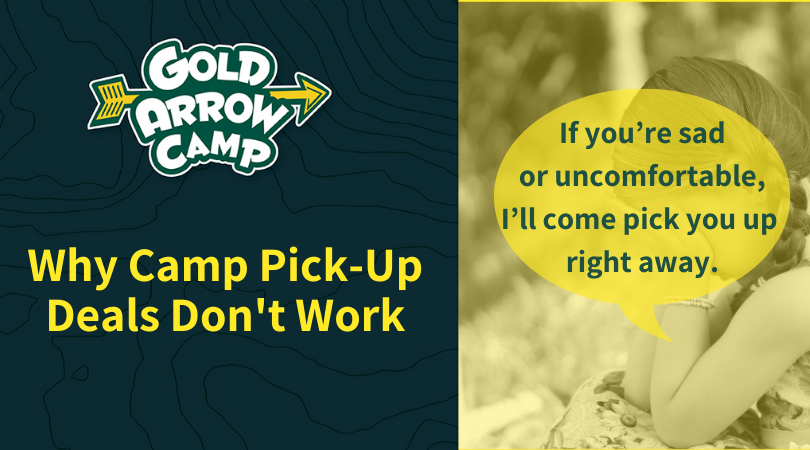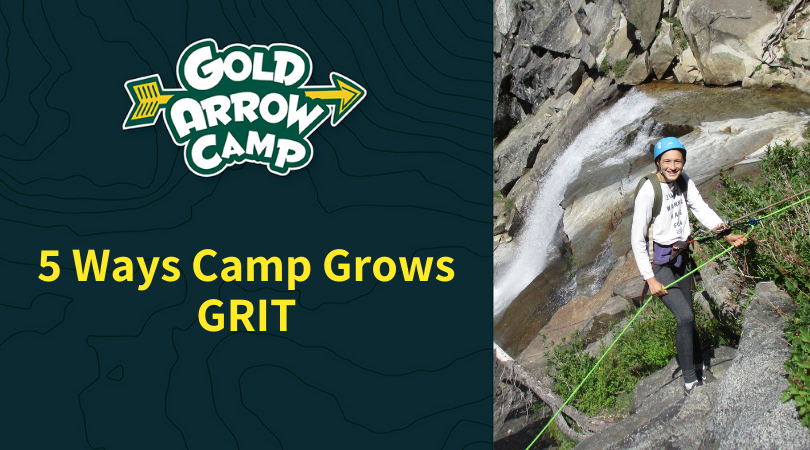
5 Ways Camp Grows Grit
“It turns out that grit predicts performance better than IQ or innate talent. Grit makes our kids productive and successful because it allows them to reach their long-term goals despite life’s inevitable setbacks. This ability to overcome challenges makes them stronger and more masterful at their tasks. Moreover, the ability to cope with difficulty – to be resilient – paves the way for long-term happiness.”
-Christine Carter, “Why I Send my Kids to Camp: It Grows their Grit”
#1 Learning self-reliance grows grit.
Campers learn to do more things for themselves when Mom or Dad aren’t around to clean up, make decisions, solve problems, intervene with social challenges, and remind kids about appropriate outerwear for a cold evening.
With counselors alongside for support, camp is a great place for kids to develop independence and self-reliance, which in turn increases their confidence.
Counselors will coach campers to be responsible for themselves and their things, but they will not tidy up campers’ bunks or dress them in warm sweatshirts. Learning to do more things for themselves – and seeing that they CAN do things without their parents’ help – grows campers’ grit.
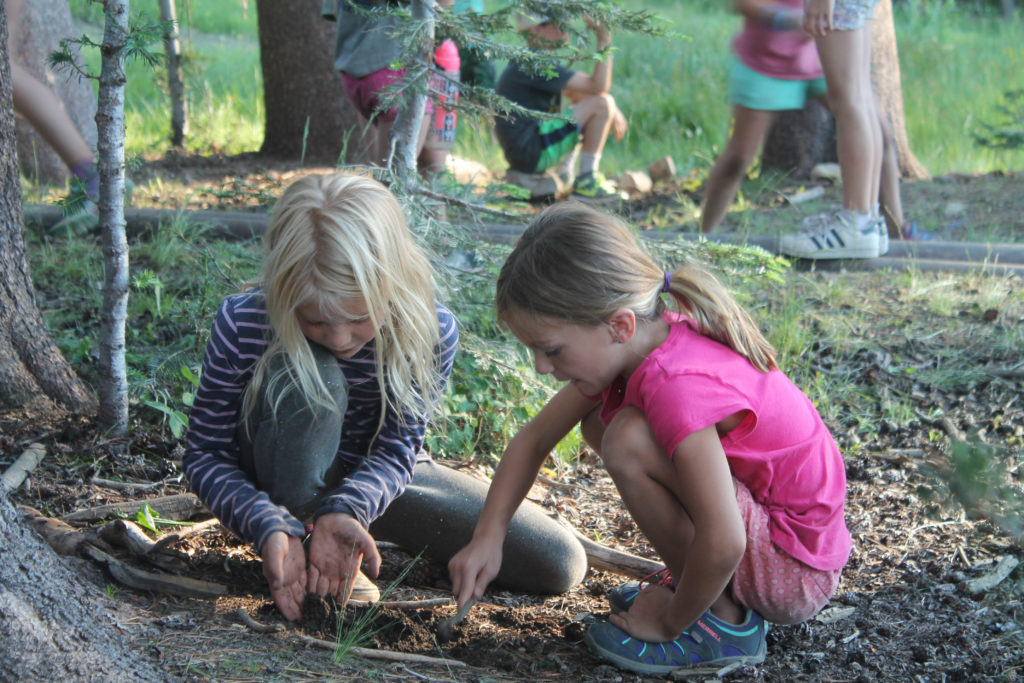
#2 Experiencing mistakes and failures grows grit.
So often, parents step in and stop a failure before it occurs; how often have we rescued a homework assignment left behind on the desk or put the finishing touches on a procrastinated science board project? It’s just really hard to stand there and watch our children crash and burn when we know the easy fix, usually involving our intervention.
Unfortunately, by not allowing our kids to feel the pain of the forgotten assignment or the sting of the lackluster science board, we deprive them the chance to LEARN from their mistakes and NOT MAKE THEM AGAIN. Instead, they learn about “parental rescue,” which is not something we want our children to take with them into adulthood. At camp, kids make mistakes all the time and are actually encouraged to fail (which is viewed as nothing more than a first attempt in learning).
A camper forgets his water bottle? He walks back to the cabin with a buddy to get it. A camper didn’t hang up her towel after activity? She takes that same damp, icky towel to her next water sport. At camp, independently fixing mistakes and persevering through failures are celebrated. Campers are learning from these mistakes, and they are also growing their grit.
#3 Talking about, setting, and reaching goals grows grit.
At camp, kids have the opportunity to reinvent themselves and tell their own stories. Counselors encourage campers to talk about what they want to learn at camp, new skills they want to acquire, and specific goals they have for the camp session. These goals become a guidepost and motivation for campers as they move through camp, and whether they reach or almost-reach a goal, they grow through challenging themselves to try.
Water skiing—the first activity I taught at camp as a counselor—is a great example of how kids grow grit at camp. Frankly, waterskiing isn’t much fun for first-timers; in fact, it takes most people a lot of practice and effort just to get on top of the water, and most don’t make it to standing because they give up too early. But those who keep trying often discover a rewarding payoff.
In the same way, campers experience amazing gratification when they overcome a fear of heights or break through their shyness when talking to new people. Even pooping in the woods for the first time is celebrated as an accomplishment at camp! And each of these goals reached, big or small, grows grit.
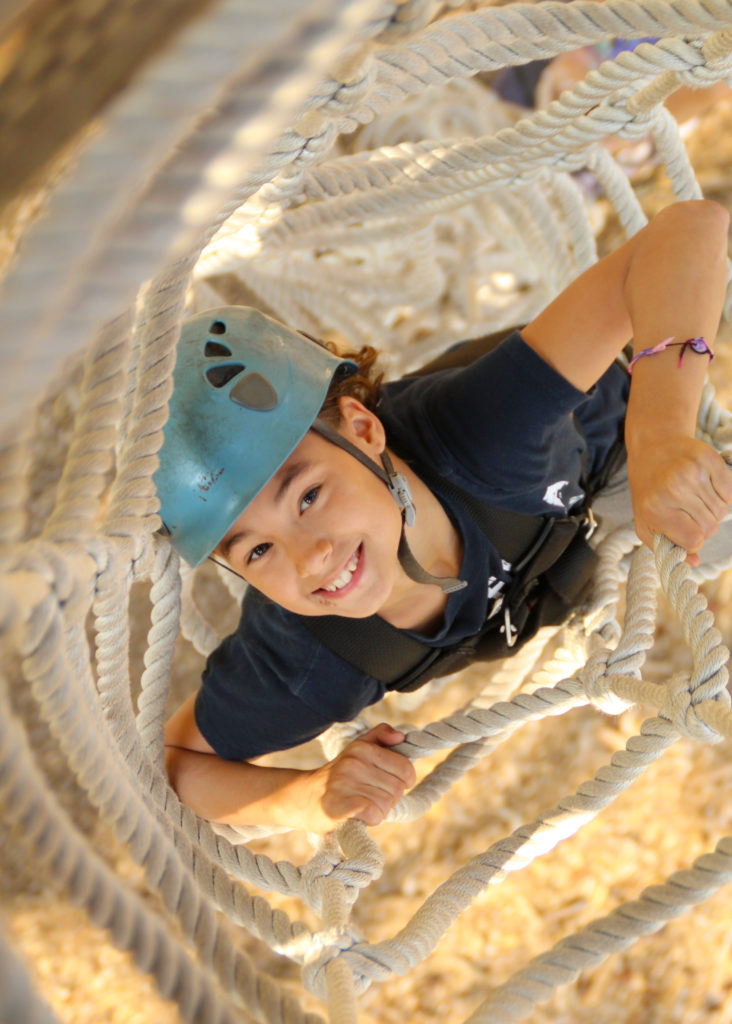
#4 Facing new challenges grows grit.
In addition to specific activity or social skills goals, there are many new things campers experience that aren’t necessarily challenges, but they can be for some kids. Campers are faced with many new, unfamiliar things at camp: a new place to sleep, new people, new activities, new foods, and a new view, to name a few.
If you studied abroad during college, you know that living in a new country and navigating the culture grows your grit. For many kids, going to camp is like that. For an only child, living in close quarters with eight or nine other kids is a completely new experience. It may or may not be challenging, but it’s different and needs to be navigated. And every new experience, whether easy or difficult, grows the confidence kids have in themselves about approaching OTHER new experiences. And that grows their grit.
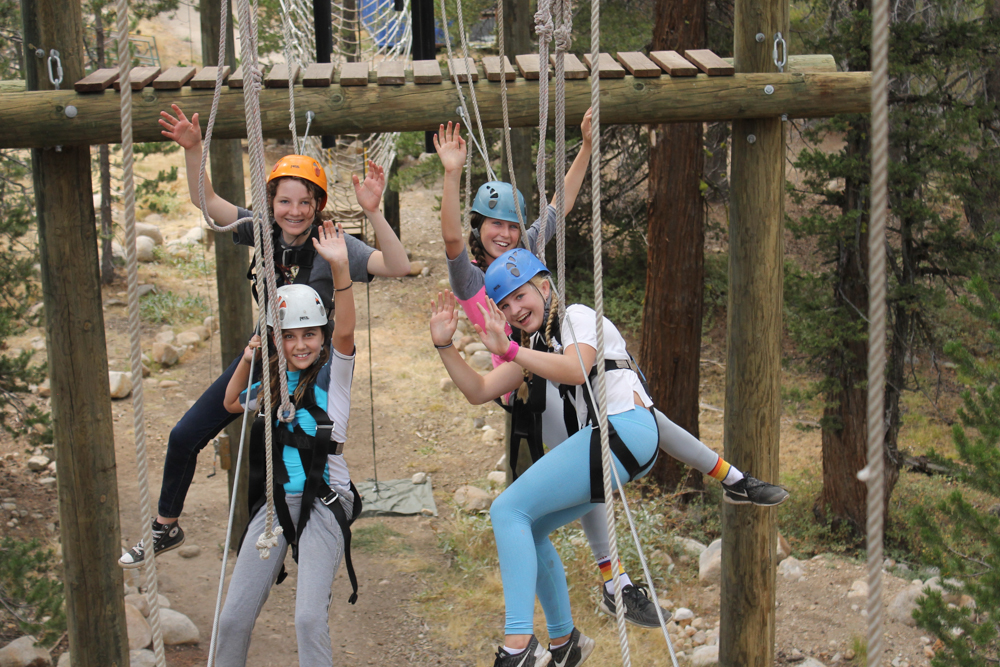
#5 Feeling emotional and physical discomfort grows grit.
Many campers feel some degree of emotional discomfort while away from home. Because of this, some parents will never send their kids to camp. Those parents simply can’t handle the idea of their child going through any kind of distress.
But those of us who have experienced how camp positively impacts our kids know that it’s the difficult, uncomfortable stuff that helps them grow. The most common emotional discomfort at camp is homesickness, and it’s especially painful and daunting for anxious kids. Homesickness is very real, but it can be a huge source of growth once the camper figures out how to overcome the emotions and successfully complete camp. I don’t know of any other setting where kids can be coached through a difficult time and emerge invigorated, proud, and wanting to do it again.
The physical discomforts of camp are also real. Parents may not want to hear about (and probably couldn’t handle themselves) the hardships involved in a big lightning storm, a frigid mountain night, a steep uphill hike, or lake water so cold it makes your teeth chatter. But these things are good for campers, who often don’t experience much physical discomfort at home. Campers speak with pride about the emotional and physical challenges they face and overcome at camp. And those experiences—maybe more than anything else—grow grit.
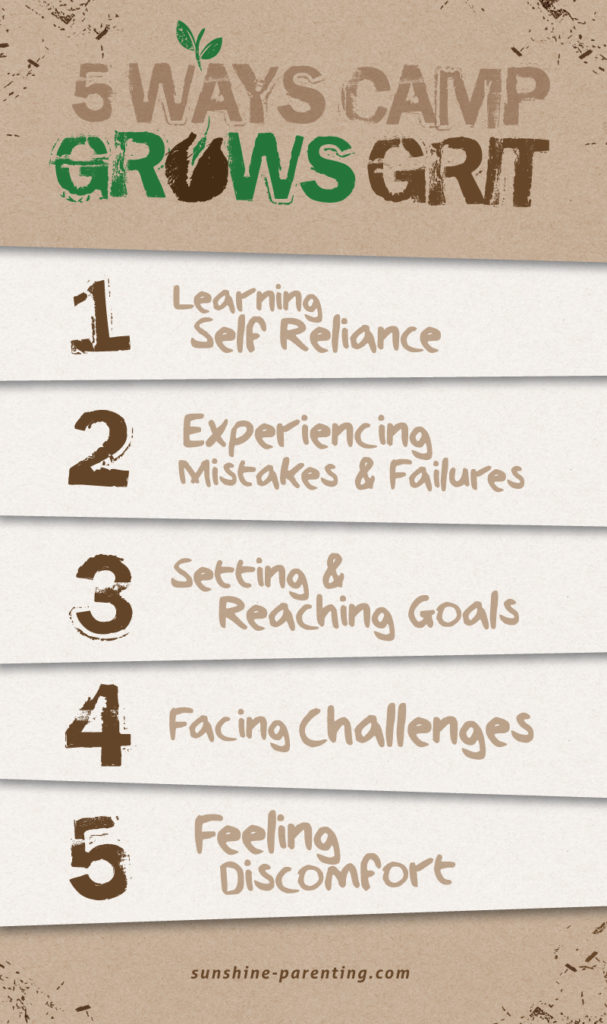
Article originally published at Sunshine Parenting.
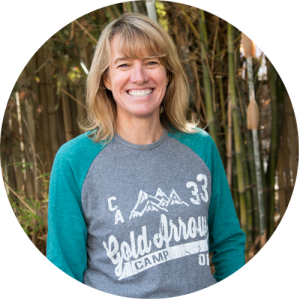
Audrey “Sunshine” Monke, MA, has been the owner of Gold Arrow Camp since 1989 and currently serves as the Chief Visionary Officer. In addition to her vision-casting and mentoring at GAC, Sunshine is an author (Happy Campers: 9 Summer Camp Secrets for Raising Kids Who Become Thriving Adults), podcast host, speaker and coach on the topics of parenting, social skills, and happiness. Find out more at her website, Sunshine Parenting.
Visit Sunshine Parenting for more summer camp-related posts & podcast episodes.
Resources/Related Posts & Podcast Episodes
The Blessing of the Least Favorite Activity


